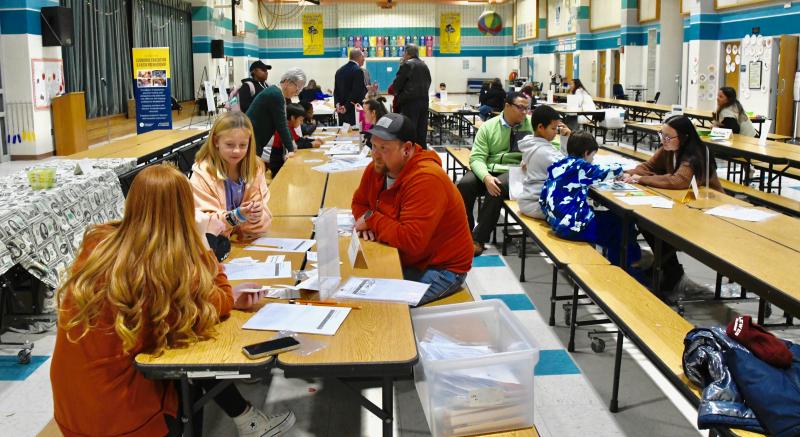Students learn ins and outs of finances
Rep. Jeff Hilovsky, R-Long Neck, is passionate about the importance of students learning financial skills. He has become a champion for increasing financial literacy in schools.
“We want to plant a seed to build better people who are responsible for their finances,” he said during a Nov. 29 financial literacy event at Long Neck Elementary School. “In addition, we want to highlight the positive things that happen in our schools.”
The University of Delaware's Center for Economic Education and Entrepreneurship held a pair of financial events at Love Creek Elementary School Nov. 28 and Long Neck Elementary Nov. 29. Hilovsky said more than 170 people attended the Love Creek event.
At the events, students and parents participated in a variety of financial activities and games at several stations set up for students up to fifth grade.
“It's all about students with their parents learning about saving and spending, making good financial choices and goal setting,” said Bonnie Meszaros, assistant director, who has won many awards and was inducted into the Delaware Women’s Hall of Fame in October.
With her was Jen Magaw, the program's organizer and administrative assistant. Also attending the Long Neck event were Superintendent Jay Owens and board of education members President Leolga Wright and Donald Hattier.
Students were treated to pizza and door prizes, and had financial games to take home with them.
Center's vision, mission
The center has a vision of seeing all students graduate as economically literate, productive citizens.
Its mission is to help prepare educators to teach economic skills to students by providing resources, training and grants.
The center has 16 core programs, including the Teach Children to Save Day, summer camp and Banks at School.
Students are taught how the stock market works, and how conservative spending and saving can lead to financial security.
Hilovsky and former Rep. Ruth Briggs King, R-Georgetown, tried to get a bill passed requiring mandatory financial literary courses in schools. The bill was released from committee and awaits action in the full House, but to date there are no mandatory requirements for financial literacy education.





























































